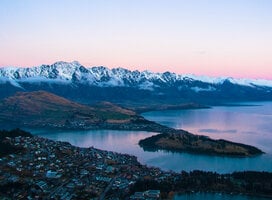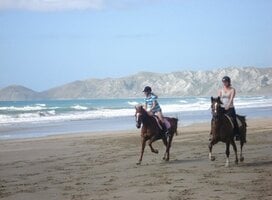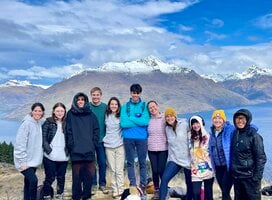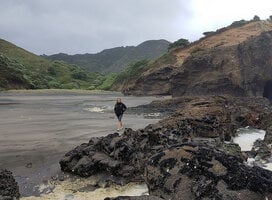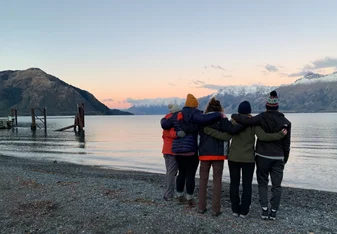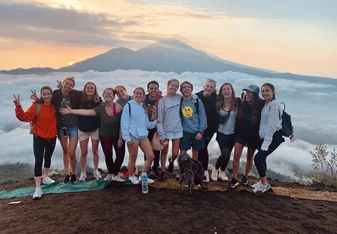Gap Year Programs in New Zealand
Vibrant cities, open vistas, towering volcanos, and friendly locals – there are so many reasons to spend your gap year in New Zealand. With a working holiday visa program and a majority English-speaking population, New Zealand is a great choice for first-time solo travelers. Plus, the Kiwi love of the outdoors and access to picturesque landscapes means that you'll never have a dull moment. Keep reading, and you may just move New Zealand to the top of your gap year destination list!
Volunteering
Programs vary based on location and length, with some being tailor-made for those who want to travel throughout the country, staying in cities such as Christchurch and Auckland for only a few weeks at a time.
Adventure Travel
New Zealand is renowned worldwide for adventure sports and activities - including skiing and snowboarding, mountaineering, bungee jumping, sky diving, and white water rafting. If you're looking to use your outdoor interests as a way to make friends, program providers offer group adventure tours throughout New Zealand primarily geared toward gap year travelers and residents.
Have a ton of time? The Te Araroa “tramping” (hiking) trail traverses both islands, from one tip to another, and takes four months to complete; however, its pit stops in many villages throughout the country means you can do daylong or weeklong hikes whenever time permits.
Internships
Professional internships are available in all of New Zealand's major cities, with internationally known companies thriving in an active business climate. You can apply for an internship directly through the website of the company you chose or through third-party internship program providers.
You can also find in-person and virtual opportunities on our Go Overseas internships job board.
Visas for New Zealand:
Visitors from most countries do not need a visa to enter New Zealand for a three-month duration; check the NZ embassy website for a list of visa-waiver countries. Otherwise, the following visas are available for those who want to spend more than three months in New Zealand:
- Temporary Work Visa – for people 18-30 who have a job offer or students studying or have studied in New Zealand and want to continue their stay while working.
- Working Holiday Scheme – depending on your country, people 18-30 can apply for a stay of up to 12 months. You can work, travel freely, and even sign up for classes/courses while in the country.
- Note that a return ticket and a certain amount of money in your bank account are among the requirements.
Cost of Living in New Zealand
The cost of daily living – rent, food, utilities – is quite reasonable compared to many popular gap year countries. And because of New Zealand's successful cotton and wool industries, there are great deals to be had on outdoor clothing. Electronic and tech items tend to be more expensive as they're imported, so stock up at home on that new laptop or cell phone. To find up-to-date cost of living data for New Zealand, check out Numbeo.
Gap Year Programs in New Zealand
Pagination
What People Are Saying
New Jobs
View the latest job postings on our job board. A great way to earn work experience during your gap year!
Related Gap Year Articles
Frequently Asked Questions
-
What are the benefits of a gap year in New Zealand?
New Zealand is sprawling with different climates and natural wonders, as well as a friendly community with a deep respect for the indigenous Maori culture. A gap year in New Zealand is a way to meet like-minded people from around the globe, see rare and endangered birds, and connect with nature in one of the most photogenic countries on earth.
-
How much does a gap year in New Zealand cost?
The cost of your gap year in New Zealand depends on what you plan on doing during the experience. New Zealand has a high cost of living, and since the country consists of two main islands, travel within the country can be expensive. Additionally, New Zealand is a remote island nation in the South Pacific, and flights from the U.S. and Europe to New Zealand can be costly. If you plan to work, intern, or become an au pair, you can help offset these expenses.
-
What are the most popular types of gap year programs in New Zealand?
New Zealand has a large agricultural industry, so many gappers find work on kiwi vineyards or dairy farms. Additionally, New Zealand attracts adventure sports athletes and enthusiasts from around the world looking to ski, surf, mountain bike, rock climb, skydive, bungee jump, or get their adrenaline fix in any way they can.
-
What kind of visa do I need for a gap year in New Zealand?
The most common New Zealand visa for a gap year is the working holiday visa (for those between the ages of 18 - 30). A working holiday visa allows visitors to work, travel, and live in New Zealand for up to 12 months. There is also a temporary work visa for people of the same age group who have a job offer or are students who want to continue their stay to gain work experience. You can research your eligibility and apply through the Immigration New Zealand website.



